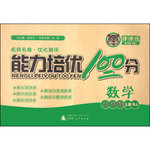题目内容
B. were finished
C. having been finished
D. been finished

 活力试卷系列答案
活力试卷系列答案 课课优能力培优100分系列答案
课课优能力培优100分系列答案We hear with our ears, right? Yes, but scientists have known for years that we also hear with our eyes. In a study published in 1976, researchers found that people combined both auditory cues(听力提示) and visual ones,like mouth and face movements, when they heard speech.
A new study that looks at a different set of sensory cues adds to a growing body of evidence that suggests such combination is natural. In a paper, Bryan Gick and Donald Derrick report that people can hear with their skin.
The researchers had volunteers listen to spoken syllables. Meanwhile, they connected the volunteers to a device that would blow a tiny puff (气流) of air onto the skin of their hands or necks. The syllables included “ba” and “pa”, which produce brief puffs from the mouth when spoken, and “da” and “ta,” which do not produce puffs. They found that when listeners heard “da” or “ta” while a puff of air was blown onto their skin, they considered the sounds as “ba” or “pa”.
Dr. Gick said the findings were similar to those from the 1976 study, in which visual cues defeated auditory ones — volunteers listened to one syllable but thought it another because they were watching a video of mouth movements corresponding to the second syllable. In his study,he said,cues from sens ory receivers on the skin defeate
ory receivers on the skin defeate d the ears as well. “Our skin is doing the hearing for us,” he said.
d the ears as well. “Our skin is doing the hearing for us,” he said.
Dr. Gick noted that it would normally be rare that someone actually sensed a puff of air produced by another, although people might occasionally sense their own puffs. “What’s so persuasive about this particular effect,” he added. “is that people are picking up on this information that they don’t know they are using.” That supports the idea that combining different sensory cues is natural.
Dr. Gick said the finding also suggested that other sensory cues might be at work in speech perception(知觉) — that, as he put it, “we are these fantastic perception machines that take in all the information available to us and combine it faultlessly.”
【小题1】“Da” or “ta” were considered as “ba” or “pa” when __________.
| A.they were spoken quickly |
| B.puffs of air were blown onto the listener’s skin |
| C.they were pronounced using a special device |
| D.they were made with face movements |
| A.Humans combine different sensory cues through experience. |
| B.Dr. Gick’s new study is more important than the one in 1976. |
| C.People sometimes can sense their own puffs when speaking |
| D.Only auditory and visual cues are at work in speech perception. |
| A.We Can Hear with Our Skin |
| B.Our Visual Cues Is Doing the Hearing for Us |
| C.Facial Expressions Are Important |
| D.We Are Fantastic Machines |
| 完形填空 | ||||
| For 52 years my father got up every morning at 5: 30 a. m., except Sunday, and went to work.I__1__ saw my father home from work ill.He had no hobbies, __2__taking care of his family. For 22 years, __3__I left home for college, my father__4__me every Sunday at 9?00 a. m..He was always interested in my__5__, or how my family was doing, and I never once heard him__6__about his lot (生活状况) in life.The calls even came when he and my mother were in other states. Nine years ago when I__7__my first house, my father,67 years old, spent three days__8__my house. He would not__9__me to pay someone to have it done.All he __10__was a cup of tea, a paint brush and to talk to him.But I was too__11__.I had a law practice to run, and I could not take__12__to hold the brush, or talk to my father.__13__things happened several times later. The morning on Sunday.January 16,1996, my father telephoned me__14__, this time from my sister's home in Florida.But the__15__came again at 4?40 p. m.that day.My father was in the__16__in Florida with an aneurysm (动脉瘤). I got on an airplane__17__, and on the way, I__18__of all the times I had not ta ken the time to talk to my father.I determined that when I arrived, I would__19__for the lost time, and have a nice long talk with him. I arrived in Florida at 11?30 p. m., my father had__20__at 9?12 p. m..This time it was he who did not have time to talk, or to wait for me. | ||||
|